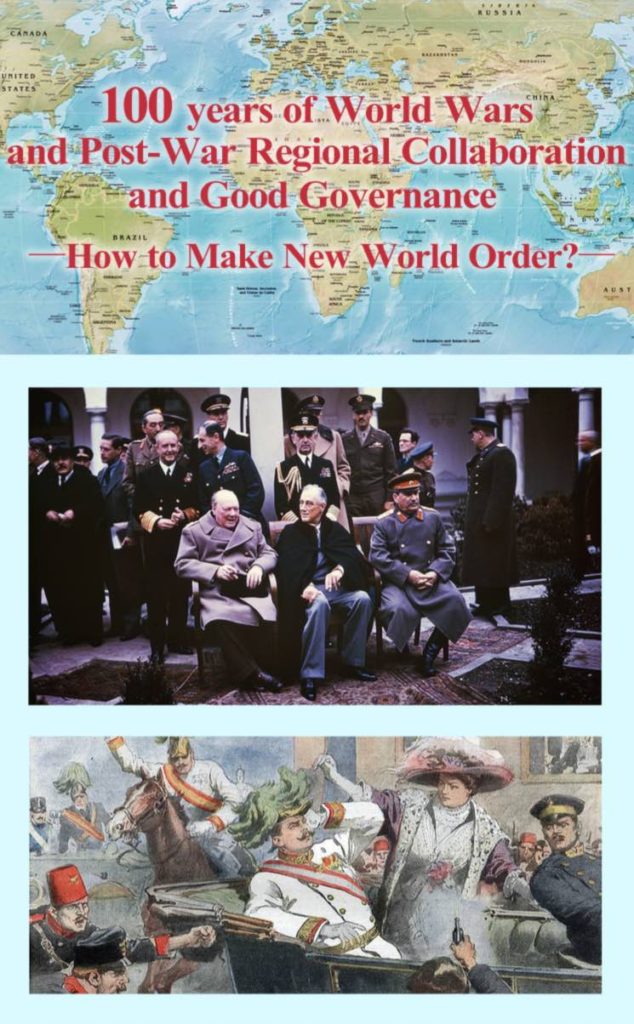Dates: December 3,4, (Tokyo), December 8 (Kyoto), 2020.
Online Conference Networks in the World/ Japan, Asia, Europe, and America
Organized by: Science Council of Japan, Committee of Area Studies, Subcommittee of Asia Regional Cooperation and Academic Network Construction, & Committee of Economics
Co-sponsored by: Aoyama Gakuin University (EU European Commission, Erasmus Mundus Fund, Japan Society for the
Promotion of Science (JSPS), Japan-India Bilateral Academic Cooperation Fund) Kyoto University, Economic Institute, CHIR (Committee of History of International Relations, Paris & Milano)
Programme: PDF file
Registration: https://bit.ly/370Stra
We will use the Zoom. Please install the application in advance. The Conference URL will be displayed after sending the answer.
Prospectus: The world is currently at the turning point. The 20th century was a century of world wars. Two world wars occurred, and the Cold War ruled the world after the two world wars.
Amidst the post-war devastation, the European Community and European Union was formed in Europe; Europe has created peaceful governance by building economic collaboration, institutions and establishing the rule of law. In Asia, ASEAN also pursued regional governance after WWII. However, there is a new nationalism in the contemporary world. Populism is spreading in Europe.
There is a wave of rapid economic growth in rising countries, especially in China and India. Destabilization in search of democratization is spreading simultaneously in East Asia, East South Asia, and South Asia.
In this field, based on the three wars in the 20th century (WWI, WWII, Cold War), what kind of regional institutionalization and regional governance have been built up in an attempt to avoid endless war and conflicts? We will examine and consider what kind of order is needed to stabilize the conflict regions among both Europe and Asia.
The theme of the Tokyo and Kyoto Conferences are to investigate and clarify how the countries that experienced the World Wars have considered regional coexistence in each period and each region and how to establish peace, stability and prosperity under institutions and rule of law. We would like to organize the Tokyo and Kyoto Conference and discuss Post-war regional cooperation and governance in this transition period. We hope many scholars and young researchers will join us and discuss how to make New World Orders from these unstable periods.

